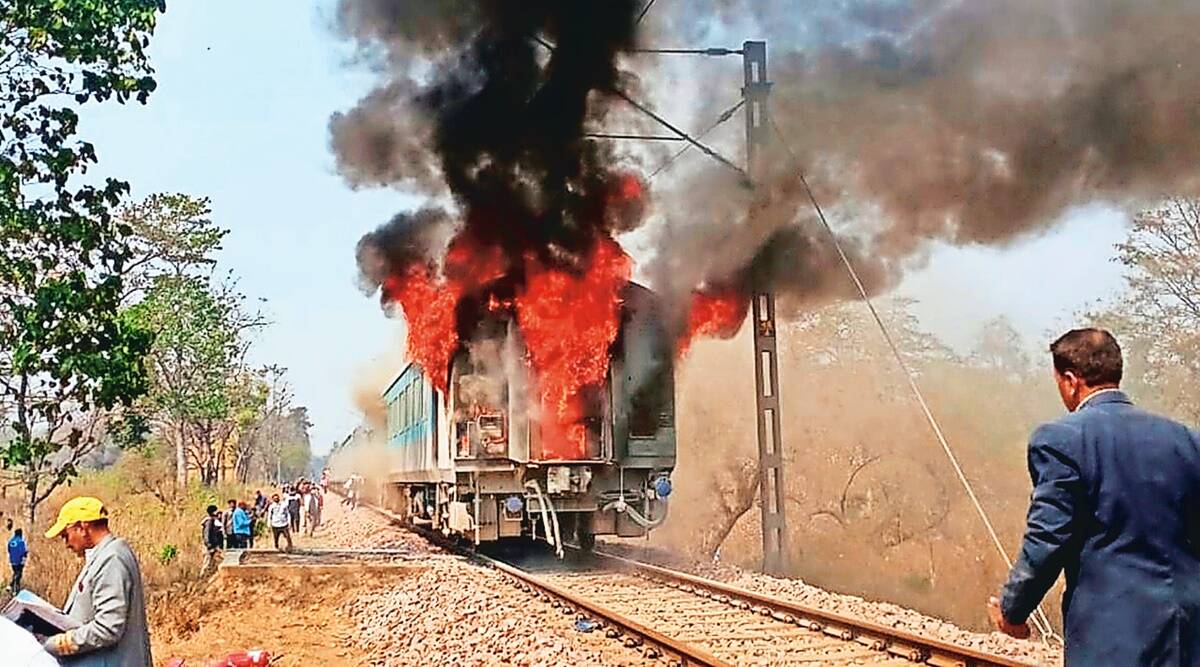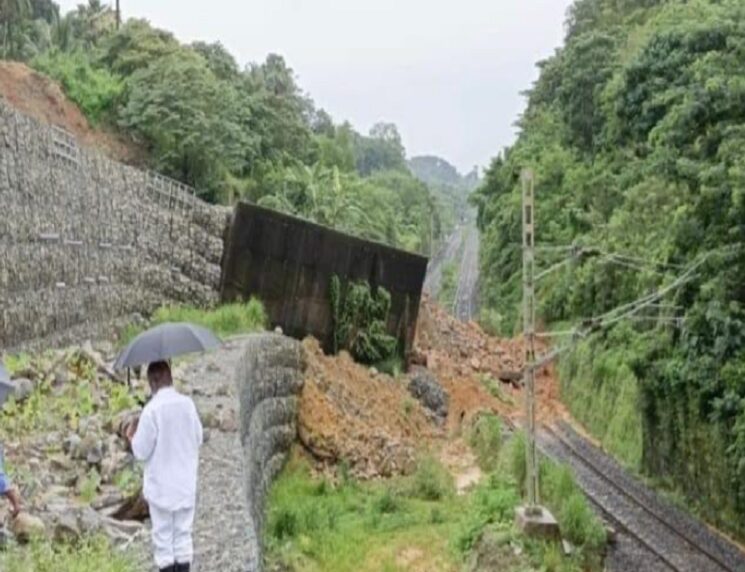ASK PASSENGERS to crawl, so they don’t suffocate; insist they save themselves first and not bother about their luggage; enlist volunteers from among passengers; form Instant Action Team of onboard railway staff for each journey.
This is part of what railway staff are supposed to do in case a running train catching fire, according to the Standard Operating Procedure (SOP) on incidents of fire, created by Indian Railways for the first time.
Stung by a spate of fire incidents, including fire in a running Shatabdi in March, the Railway Ministry decided to bring out a set of dos and don’ts and train its staff — those on board as well as at stations and elsewhere — on how to prevent loss of lives and minimise damage to property if a train catches fire.
“More people expired due to suffocation from smoke rather than due to actual burning. During fire, the poisonous gases such as CO, CO2 etc. being lighter in weight circulate in the upper part while oxygen in the lower part. Passengers should be advised to crawl on floor instead of running,” says the training material for its staff developed as per the new SOP document. “They should also be advised to take a wet cloth and cover their nostrils,” it says.
One coach of the New Delhi-Dehradun Shatabdi Special caught fire soon after crossing Raiwala in Uttarakhand on March 13. The train was stopped, the passengers taken off and the coach was detached before the train was sent on its way to Dehradun. As per probe, smoking in the toilet might have led to the fire.
Now, training is going on of all the staff concerned as per the new SOP on what they should do in case a fire happens.
The SOP document says the typical time available for rescue is a few minutes before smoke fills up and passengers start getting disoriented. Smoke can cause suffocation and loss of consciousness in two minutes. While fire in personal clothing causes loss of consciousness in 10-15 seconds and death or incapacitation can happen in about five minutes, the document says.
“Ordinarily give nothing ORALLY to injured one, but if medical treatment is delayed more than four hours, give Oral Rehydration Solution (ORS) drinks preferably bio carbonated soda,” it says.
It has recommended that an Instant Action Team on fire be formed in each train as a matter of routine. The team will have the crew — the drivers, guard, TTE and other staff. It will also have those on contract, like pantry and cleaning staff. It says mobile numbers of these staff should be with railway officials in each train journey so that coordination is instant in case of a fire.
The SOP envisages training of all these people in how to operate the fire extinguishers that are available on board. Located at various places, there are altogether 18 fire extinguishers in each running train.




